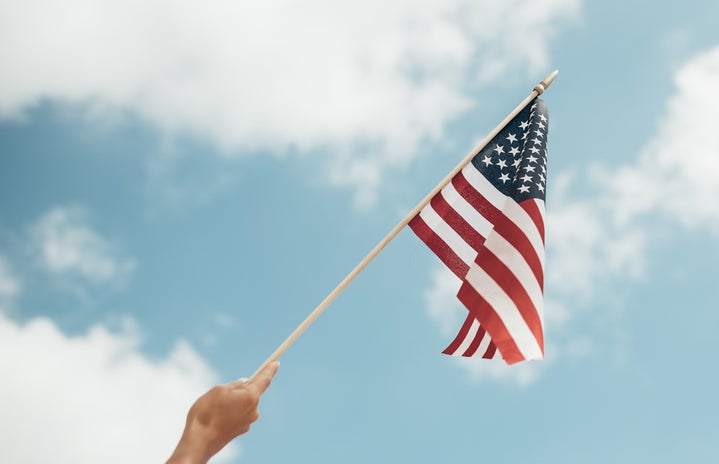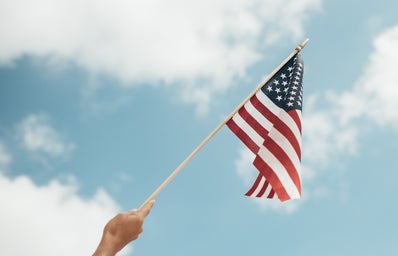Some believe Trump’s speech at the final rally in his “Save America” series indirectly but effectively incited the Capitol Riot. Others believe it was a sequence of the lame-duck president’s tweets. It has even been reported that Trump is “not off-limits in [Washington, D.C.’s top federal prosecutor’s] investigation” of the Capitol Riot as he is potentially a direct “actor.”
“…Anyone that had a role, if the evidence fits the element of a crime,” acting U.S. attorney Michael R. Sherwin told The Washington Post, “they’re going to be charged.”
These were all likely factors that ignited the Capitol riot, but I think the real answer is even more basic. The failed coup of January 6, 2021 that left casualties in its wake was a long time coming. The riot happened for the same fundamental reason I believe Trump was elected in the first place: white Americans are slowly — but surely — losing the level of superiority once acquired by their skin color. And they’re mad about it.
That, and of course that America was far from willing to elect a woman into the highest held office in the land. But that’s an article for another time.
The failed coup seemed to have shaken many Americans to the core. “I can’t believe it!” my friends cried to me. “This is insanity,” said my mother.
But as I watched the chaos unfold, I didn’t feel much, if anything at all. I definitely didn’t feel shock. As I told my friend later that week while on a socially-distanced walk, “This is pretty on-brand of them. Why are we acting like this wasn’t a possibility?”
Throughout the Trump presidency, American citizens were obviously exposed to abnormalities and omissions of traditions and courtesies that we had never seen before. To most, Trump’s mere election was incomprehensible. But all of it, including and especially the failed coup, is an example of, as Emory University professor and author of White Rage: The Unspoken Truth of Our Racial Divide, Carol Anderson told NBC News, “What we’re seeing is vintage white rage.”
“White rage,” Anderson wrote in an op-ed for The Washington Post, “recurs in American history… For every action of African American advancement, there’s a reaction, a backlash.” Anderson goes on to cite the Union’s victory in the Civil War which “did not bring peace,” but instead brought forth a wave of white resentment because “the good ol’ days of Black subjugation were over,” resulting in the creation of a more modern way to oppress Black citizens. During the era following the Civil War, these new ways included things like Black Codes and the Ku Klux Klan.
While we may no longer have Black Codes, we have the Ku Klux Klan and we definitely have white resentment — both of which were on display on January 6th.
Other experts have echoed Anderson’s ideas. Bree Newsome Bass, who is a human rights activist most commonly known for taking down a Confederate flag at the South Carolina Statehouse back in 2015, has said that it is “entirely about the perceived loss of the power of whiteness… People feel like they are losing something if whiteness no longer carries privilege and power.”
Just as white Americans felt following the Civil War.
“Part of why Trump inspires this cult-like loyalty is because he embodies that grievance,” Newsome Bass went on to say. “When he says ‘I have been robbed,’ he is speaking for the white supremacist cause. When there’s a perception that the power of whiteness is being lost, the act of violence is what reinforces and reassures it.”
The need for the Trump-inspired “cult-like loyalty” existed long before Trump came onto the scene, though. A lot of Americans felt a sense of pride and triumph when President Barack Obama was elected as the first Black American president — and rightly so. However, a lot of other Americans felt the same rage and resentment Anderson talks about because of the obvious and prominent Black progress. So much so, that racial issues most citizens thought had been overcome began to resurface. Many experts, in fact, cite Barack Obama’s historic election as a direct factor in “igniting the mainstreaming of white nationalism.”
In their new book, Hard White: The Mainstreaming of Racism in American Politics, professors Sanford Schram and Richard Fording of the University of Alabama argue that the election of America’s first Black president allowed white nationalism to move “from the margins to the mainstream of American politics.” Schram claims that upon Obama’s election, there became “an opportunity for extremists to do what they had been thinking about for several decades… [to] get more involved in conventional, mainstream electoral politics.”
And they did. “Extremists started to change their rhetoric a little bit… and their behaviors, and started to participate more in mainstream politics. And that opened the door to white nationalists, white supremacists, racists, becoming more involved rather than sitting on the sidelines,” said Schram, as we had seen them do for a great deal of time before then.
Some may argue that Trump only appealed to the demographic of voters that he did because of economic incentive, but according to Ford and Schram — and many others — Trump’s platform mostly appealed to and mobilized racist voters. Electing a Black man into office was the last straw with white voters; Trump knew that, so he spoke to those needs and got their vote subsequently.
So when Americans were surprised that Trump got those votes — as I’m sure many of us, including myself, are still surprised about in the 2020 election despite his current loss — we were underestimating the immensity of white supremacy and of racism in America. The shocked reaction of Americans everywhere on January 6th was just another example of how much we underestimated that movement.


